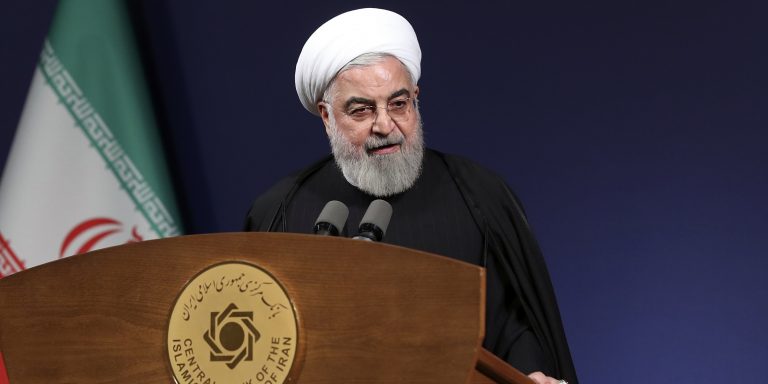INTELBRIEF
January 29, 2020
IntelBrief: Iran Nuclear Deal Unraveling

- Europe’s use of the formal dispute resolution provision of the Iran nuclear deal is a consequence of the Trump administration’s abandonment of the deal in 2018.
- The Europeans have made clear that invoking the dispute mechanism does not imply that they will join the Trump administration’s campaign of applying maximum pressure on Iran.
- The triggering of the dispute arbitration process could lead to talks on a revised, broader Iran agreement that the Trump administration advocates.
- The prospects for U.S.-Iran talks are likely to flounder due to the Trump administration’s unwillingness to ease sanctions and Tehran’s refusal to limits its regional operations following the U.S. strike that killed Soleimani.
.
In mid-January, Britain, France, and Germany - the three European parties to the 2015 multilateral Iran nuclear agreement (Joint Comprehensive Plan of Action, JCPOA) – announced that they were invoking the formal dispute resolution mechanism (DRM) of the agreement in response to Iran’s five phases of ‘reduced compliance’ with the accord. The European step came days after Iran announced that it would cease abiding by the remaining major terms of the accord – the limitation on the number of operating centrifuges (which enrich uranium) to about 5,000 in operation. Iran’s announcement implies that Tehran will no longer limit its enrichment of uranium to 3.67% purity or abide by prescribed limits of the size of its stockpile of enriched uranium. In the aggregate, Iran’s ‘breakout time’ – the amount of time it would take for Iran to assemble enough fissile material for a nuclear weapon after a decision to do so – is now far below the one-year timeframe that the JCPOA was designed to maintain. Iran has taken these steps as part of its effort to compel U.S. allies to pressure the Trump administration to ease sanctions that are crippling Iran’s economy.
The European move outwardly represents an effort to maintain credibility in the face of Iran’s flouting of the accord. Britain, France, and Germany have expressed understanding for Iran’s position that the Trump administration’s re-imposition of sanctions denies Iran the benefits of the accord. However, the three European powers say they do not accept Iran’s view that the accord itself provides for Iran to reduce compliance in the face of re-imposed U.S. sanctions. Iran’s violations clearly had become too extensive for the Europeans to excuse as an understandable Iranian effort to force the Trump administration to reconsider its maximum pressure campaign against Iran.
The European move appears intended to draw Iran into a discussion of revising the JCPOA, likely in ways that might attract the interest of the Trump administration. In invoking the dispute mechanism, the three European powers stated that they will not join the U.S. pressure campaign, but instead see the arbitration process as a way to preserve – not entirely kill – the accord. The DRM, as outlined in the JCPOA, involves arbitration between Iran and the other parties, over a period of at least two months. One possible outcome of the mechanism is the snap back of all U.S. and EU sanctions on Iran, although the European powers have indicated that this is not their desired outcome.
In all likelihood, the European powers hope to expand the dispute arbitration process into a broader discussion that involves the Trump administration. For Washington, such a dialogue offers the prospect of calming political tensions with Iran and potentially achieving some of its stated objectives, particularly extending the nuclear provisions of the JCPOA which begin to expire in 2025, and placing limits on Iran’s development of ballistic missiles. Iran’s Foreign Minister Mohammad Javad Zarif has, over the past two years, signaled that Iran might be willing to negotiate these demands with the Trump administration. However, aside from the hardening of Iran’s position in the wake of the U.S. strike that killed Islamic Revolutionary Guard Corps – Qods Force commander Qasem Soleimani, the main impediments to such negotiations are the Iranian refusal to accept any limits to its regional influence, and the Trump administration’s apparent unwillingness to ease sanctions on Iran. The administration appears to believe that sanctions can force Iran to capitulate and agree to cede the pillars of its national security policy – the arming and support for regional allies and proxies that enable Tehran to project power throughout the region. There is no evidence, to date, nor is any evidence likely to appear, that Iran will give ground on its fundamental strategy, no matter how much economic pain is inflicted on it.
.
For tailored research and analysis, please contact: info@thesoufancenter.org